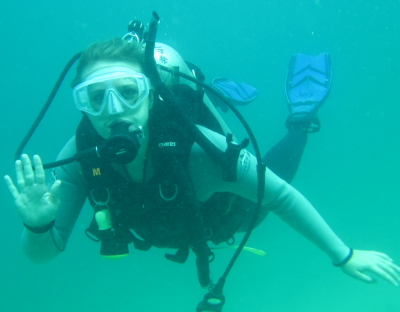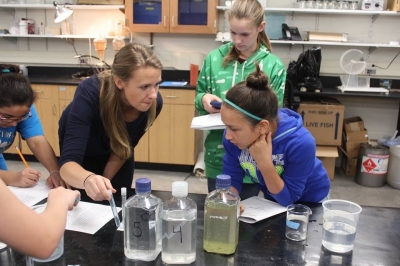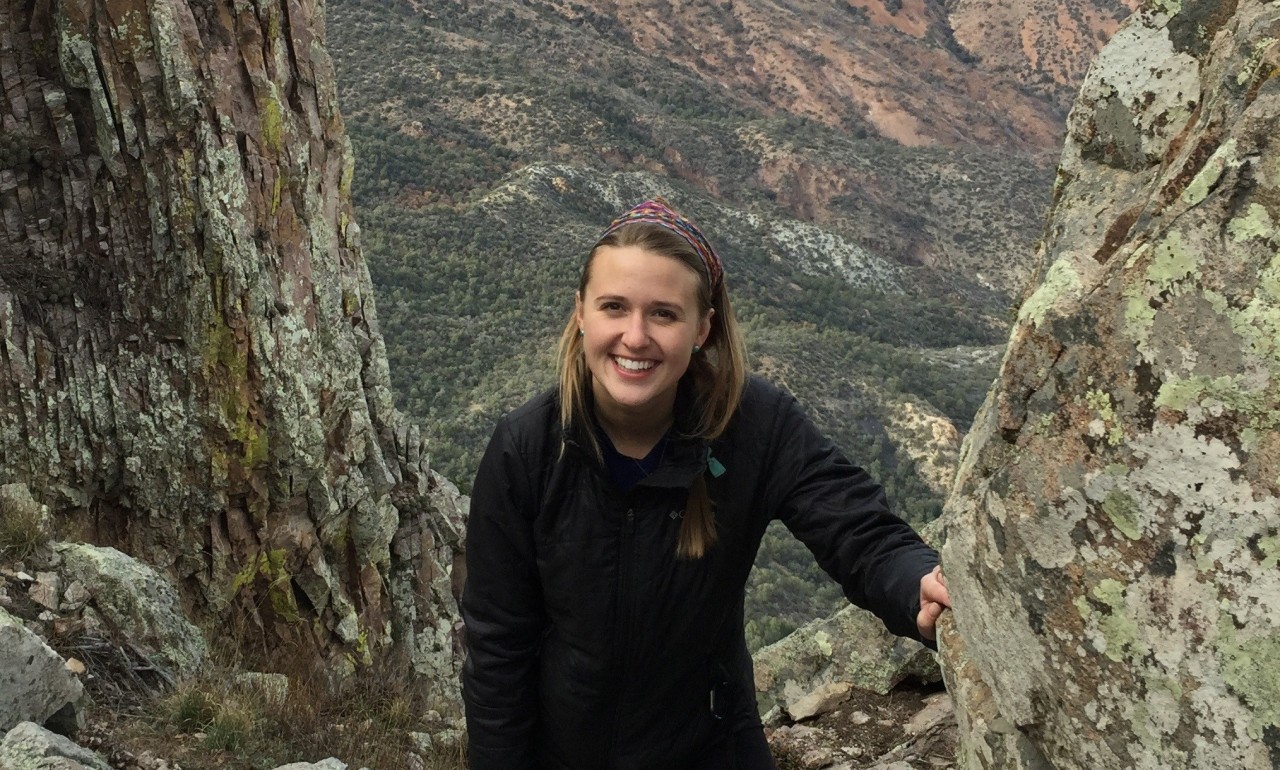Meredith Evans
Faculty Supervisor: Dr. Zhanfei Liu
Tell us a little bit about your research project.
I’m researching chemical pollution following the Deep Water Horizon oil spill, but it’s really is a two-fold project. The first part is determining how oiled sediments and tar collected in Louisiana from 2010-1013 weathered over time and space; more specifically determining what chemical compounds remain in the system and which are removed over time. The second part of my research involves developing a new method that can be used to identify these chemical constituents. Ideally, this method will eliminate the laboratory intensive sample preparation and allow us to analyze many more compounds at once, making chemical analysis much more cost and time efficient.
 How did you decide you wanted to pursue marine science?
How did you decide you wanted to pursue marine science?
I always knew that I wanted to be a scientist. When my older brother started working as a scuba diving instructor he introduced me to the ocean and I decided that I wanted to focus my career around exploring and learning more about it. I also loved an internship that I had at an aquatic research facility – it introduced me to real science and confirmed that it was the right fit for me.
In 10 years what would you like to have accomplished?
In 10 years, I would like to have my Ph.D. in marine science and have research experience in many different locations. Ideally, I would also like to work at an institution with an education focus so that I can split my time between teaching, research and outreach.
 Meredith Evans helps teach the next generation of scientists at the Women in Marine Science Day.
Meredith Evans helps teach the next generation of scientists at the Women in Marine Science Day.
What is the most interesting or surprising thing you’ve gotten to do for this project?
My research is funded through the Gulf of Mexico Research Initiative and because of its unique structure, I am able to interact with researchers that I would not normally have the opportunity to. For example, at a recent conference I was able to talk to modelers from Norway - we are all working on the same problems, but coming at it from many different approaches. It is exciting to have such collaboration opportunities.
What’s been the greatest reward of doing research? The greatest challenge?
The greatest challenge has easily been the troubleshooting. With the new machine we are using, every time you make an adjustment you learn something new…and every time you encounter an anomaly you have to figure out what adjustment to make to get accurate results. On the flip side, this is also the most rewarding part of my research. When you solve the problem no one else has encountered, you feel like you’re really understanding your research and becoming an expert.
What inspires you?
That’s easy – getting data back and being able to play with it. There is a great appeal in making new discoveries and seeing trends that other researchers may not have found yet. I also love sharing my research with the public. It’s a fun challenge to make it relatable to all age groups and it always inspires me to keep discovering and learning more that I can share.
Why did you choose UTMSI?
My faculty advisor and his lab philosophy fits with my learning style. Also, the satellite campus provides a great opportunity to have one-on-one interactions with faculty and graduate students that I don’t think would happen at a larger campus. I also really enjoy the opportunities to do outreach and education in a small town. It’s a tight-knit marine science community and I really enjoy it.
What has been your most memorable moment at UTMSI?
That’s a hard question to answer because there are so many… If I had to choose one I’d say it was probably the Gulf Estuarine Research Society meeting in October. This was my first conference experience. I was able to get involved planning the social activities and even presenting some of my preliminary data. It was intimidating and exhausting, but really exciting.
If you were a marine organisms what would you be and why?
An octopus. I’m particularly clumsy and if I had eight hands, things would be a lot easier.
Meredith Evans is a graduate student at The University of Texas Marine Science Institute seeking a masters in science. She has a bachelor of science in biology from the University of Oklahoma and hails from Flower Mound, TX.









